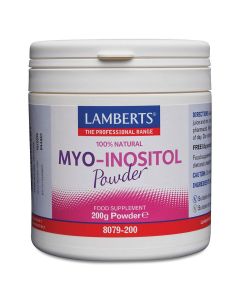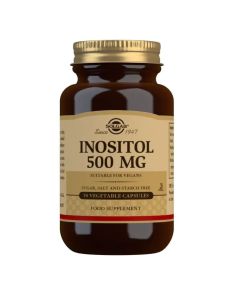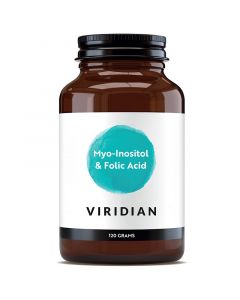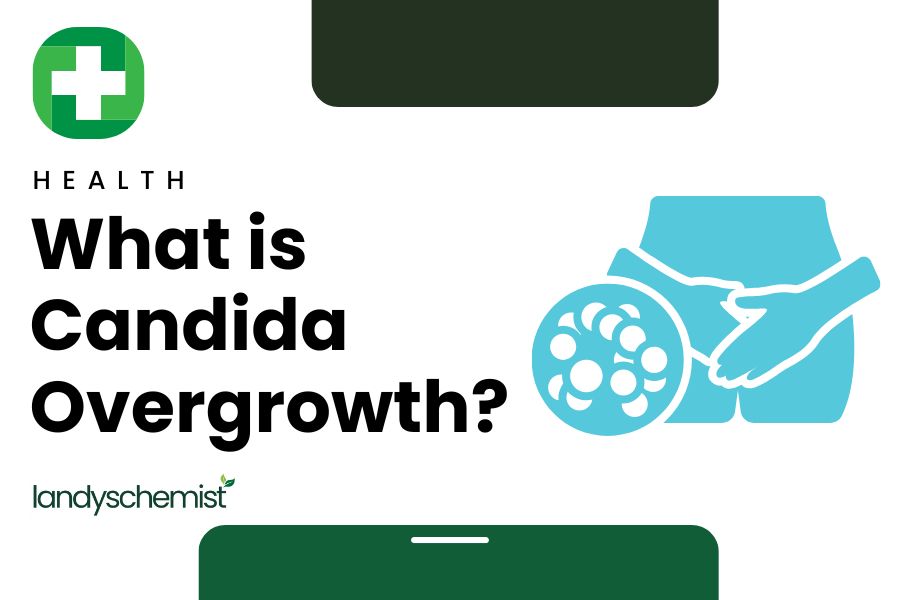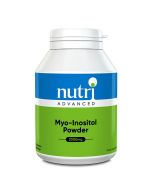
What Is PCOS And How Does Inositol Alleviate Symptoms?
Recently there has been a huge buzz regarding Inositol. Women with Polycystic Ovary Syndrome (PCOS), who had previously tried things like Metformin and all manner of diets to no avail were discovering that Inositol was actually helping them to lose weight.
What is Polycystic Ovary Syndrome (PCOS)?
PCOS affects the way a woman’s ovaries work. Within an ovary there are many follicles. A follicle is a little sac that is full of fluid and contains a single immature egg. For most women, these eggs develop and are released during the ovulation cycle but for women with PCOS the egg is not released and ovulation doesn’t happen.
What are the symptoms of PCOS?
Traditionally the most common symptoms of PCOS are:
- Irregular or very few periods at all
- Difficulty conceiving naturally
- Excessive hair growth (usually concentrated on the face, chest, back or bum
- Weight gain
- Thinning hair or hair loss
- Oily Skin or acne
PCOS symptoms typically starts to become more accentuated in your late teens or early 20s.
How common is PCOS?
So many women who suffer from PCOS have few or extremely mild symptoms and are never formally diagnosed. That said, based on the data available it’s believed that at least 1 in 10 women have PCOS although some have estimated that as many as 15% of all women might have PCOS.
How can I treat PCOS?
Traditionally doctors have recommended that women either go on the pill or use metformin to deal with the symptoms of PCOS. Neither or these solutions deal with the PCOS itself but both alleviate some of the symptoms in some women.
Unfortunately, there’s no specific cure for PCOS so generally health specialists have tried to find ways to manage the symptoms rather than trying to proactively combat the root cause of those symptoms.
What does Inositol do for women with PCOS?
Inositol is a type of sugar that is found in the brain and body tissues. There are many types of inositol but for women with PCOS they tend to be significantly deficient in one specific type; myo-inositol.
For context on this deficiency, it’s been found that healthy women tend to have a ratio of 200:1 Myo-Inositol: D-Chiro Inositol whilst women with PCOS can have a Myo-Inositol:D-Chiro Inositol ratio of 0.2:1.
Weight loss
Studies have shown that supplementing with Myo-Inositol improves metabolism in women with PCOS and also reduces incidence of acne, thinning hair or hair loss and excessive hair growth around the face, chest, back or bum.
Supplementing with Inositol can improve metabolism because generally women with PCOS have a high insulin resistance. Reducing insulin resistance reduces the risk of diabetes but also can help to reduce appetite.
Fertility
Whilst some studies have found that supplementing with Myo-Inositol improved the rate of ovulation compared with a placebo many in the field still feel that more research is needed with larger groups to determine if Inositol is the sole explanatory factor.
Many studies have supported the idea that Inositol improves the function of the ovaries and this particular study also noted that embryo quality rose in women with PCOS as a result of Inositol supplementation.
FAQs about Inositol
What dosage of Inositol is recommended for women with PCOS?
There’s no Nutritional Reference Value (NRV) for Inositol. For women with PCOS it’s recommended to take up to 2000mg, twice a day.
We tend to recommend starting on slightly lower doses and then building up to this level. Many women experience benefits from doses as low as 500mg twice a day and so it’s generally worth starting at a lower dose and then increasing it if you don’t feel any impact.
We recommend that you never take more than 2000mg a day without speaking to a healthcare practitioner.
How long does Inositol take to work for women with PCOS?
Unfortunately, it’s quite variable. In the most cases people tend to see an impact within three months. Once you start to notice the benefits this is a product you need to continue using to maintain the inositol levels in the body.
When is the best time to take Inositol?
Because inositol directly affects the metabolic function in the body it’s best to take it at meal times or 15-30 minutes before eating. This may also help to curb over eating.
Is Inositol the same as Myo-Inositol?
Myo-Inositol is a type of Inositol. There are nine different types of inositol that exist in the body but typically it is Myo-Inositol that women with PCOS tend to be deficient in.
Are there any side effects from taking Inositol?
Inositol is considered safe for adults to take. Sometimes people can experience very mild side effects which can include nausea, headaches, tummy pain or fatigue. Generally people are more likely to experience side effects if they take very large doses of 12,000mg a day or more.
Is it possible to get more inositol through food and diet?
Yes, there are lots of foods which contain inositol including:
| Food |
Inositol Content |
| Citrus Fruit Yoghurts | Up to 40mg per serving |
| Green Beans | 2mg per gram |
| Milk (both skimmed and whole) | Up to 10mg per serving |
| Peanut Butter | 1-3mg per gram |
You can also get inositol from Almond butter, brown breads and citrus fruits.
Can Inositol help women without PCOS to lose weight?
There is some evidence that Inositol may also help women without PCOS to lose weight, primarily because of the role it plays in reducing insulin resistance. Taking inositol has been shown to help the body absorb blood glucose.
Can Inositol help women without PCOS to have a baby?
Possibly. There is evidence that supplementing with inositol can help to improve the quality of embryos and thus improve your chances of having a successful pregnancy. That said the effects on women with PCOS are more pronounced. If you have fertility issues that are not related to PCOS it may be worth speaking to a healthcare practitioner or doctor to best establish what may improve your chances of conception.
What Inositol supplements can I take?
Here are some of our bestselling inositol supplements that you can take:
By Panasha Desai, Pharmacist
Disclaimer
The products offered are not intended to diagnose, treat, cure, or prevent any illness or disease, or to replace the advice of a medical professional. Results are not guaranteed and may vary from individual to individual.

